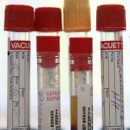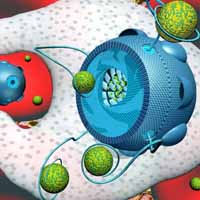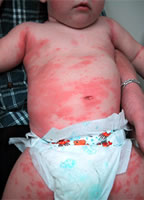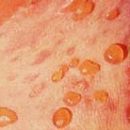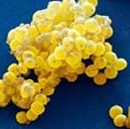We did not have time to look back, as summer flew. Autumn has come, and there is not far there. Ahead of cold days and with them endless colds. So how to help your body? Output one - you need to strengthen your immune system.
Content
Immunity - what it is?
In our body there is a whole system capable of protecting us from all kinds of infections. We are not the only one in this world. Together with us there are also viruses, bacteria, fungi and parasites. They also fight for survival and live in all organisms, including human. Confront these uninvited guests and are called by the cells of the immune system, which is a complex of organs and cells aimed at fulfilling the immunological function, T.E. on the protection of the body from genetically alien substances coming from outside or generated in the very organism. The immune system organs produce special cells (lymphocytes, plasmacites), biologically active substances (antibodies), which recognize and destroy, neutralize the cells and other foreign substances (antigens) penetrated or formed in it.
Distinguish two types of immunity:
- Cellular
- Gumoral
Cell immunity
Cellular immunity consists of T cells. They protect us from viruses and microbes, from radiation, from stress and allergic reactions.
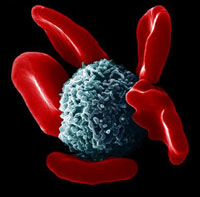
Cellular immunity plays an important role in the following reactions:
- Allergic reactions of slow-type (for example, tuberculin samples), allergic contact dermatitis.
- Protection against intracellular parasites.
- Antiviral and antifungal immunity.
- Transplant rejection.
- Antitumor immunity.
Gumoral immunity
The humoral part of the immunity is blood, lymph, complement system. This part clears our body from slags, feeds with useful substances. Carries the body «Healthy» Purified blood. In addition, he is responsible for the formation of antibodies in the body, which include the so-called B cells. They are formed in the bone marrow, in stem cells. Antibodies are represented by immunoglobulin proteins. The following immunoglobulins are now open: IGM, IGG, IGA, IGD and IGE. Of these, the most universal and well-studied are the classes of immunoglobulins A and G. It is they who neutralize up to 99% of infectious pathogens and toxins falling into our body.
Immunoglobulin G (IgG). It can be called the head of the immunoglobulin family, as it is approximately 75% of the entire family. It contains antibodies against almost all bacteria and viruses, protects our skin and respiratory system and acts in blood. IgG (especially IgGI) serves as the only immunoglobulin capable of passing through the placenta, and therefore it is extremely important to protect the child from infection.
Immunoglobulin A (IGA). Exhibit their biological activity not in the blood, but on the surface of the mucous membranes of the respiratory tract, eye, oral and nasal cavity, gastrointestinal tract. To understand the importance of this, it suffices to recall that the overwhelming majority of infectious pathogens penetrate our body through the mucous membranes.
Immunoglobulin D (IGD). It is contained in serum.
Immunoglobulin E (IgE). This species is responsible for all allergic reactions. Protects the body from insect bites, reactions to chocolate, eggs and fish.
Immunoglobulin M (IGM). His elevated number indicates the presence of infection with syphilis and rubella. An increase in Ig M level is also observed in the diseases of the liver (especially with hepatitis and cirrhosis).
If any of these immunoglobulins are not produced, immunodeficiency occurs.
What is immunodeficiency and how it arises?
Immunodeficiency (immunological failure) - a group of various states under which the immune system does not function properly, therefore disease caused by infection occur and repeated more often, they are heavier and last longer than usual.
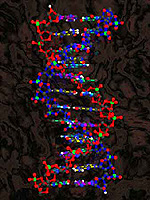
Immunodeficiency may exist from birth (congenital immunodeficiency) or develop during life.
Congenital immunodeficiency are usually inherited. Although these are rare states, more than 10 different hereditary immunodeficiency are known. In some cases, the number of leukocytes is reduced, it does not differ from the norm in others, but these cells function incorrectly. In third, leukocytes can not perform their function due to the lack of other components of the immune system, such as immunoglobulins or proteins of the complement system. Pediatrician doctors are engaged in the treatment of congenital immunodeficiency.
Immunodeficiency arising during life (acquired immunodeficiency) is usually provoked by the disease or any other external factor (radiation, drugs, stress and t. D.). It is more common than congenital. Some illnesses cause only a minor violation of the function of the immune system, while others can deprive the body of the ability to fight against infection. The human immunodeficiency virus is well known (HIV), leading to the development of acquired immunodeficiency syndrome (AIDS). The virus attacks and destroys leukocytes, which are normally struggling with viruses, bacteria and mushrooms.
Various states can also break the functions of the immune system. In fact, almost every long severe disease affects a certain extent affects the immune system. Unbalanced nutrition can also seriously disrupt the work of the immune system and lead to a shortage of all nutrients, primarily proteins, some vitamins and minerals (especially vitamin A, iron and zinc). If the weight is reduced as a result of insufficient food and it begins to be less than 80% of the optimal, then the immune system is always suffering in one way or another, and if the weight decreases to 70% of the optimal, it is damaged even more. Infections affecting people with a weakened immune system contribute to a decrease in appetite and increase the energy needs of the body, the closure of the vicious circle. The degree of damage to the immune system depends on how unbalanced the diet was, how long the patient was incorrectly fed and what kind of main disease it was accompanied by. Full nutrition quickly normalizes the state of the immune system.
Proper diagnosis of immunodeficiency
The main indicators for immunological surveys are:
- Chronic diseases of internal organs with frequent exacerbations, difficult to amenable to stationary therapy (pulmonary, intestinal, kidney and t.D.);
- Acute or recurrent (repeated) purulent processes of various localization: barbus, furunculae, carbuncules; osteomyelitis, paraproititis;
- chronic tonsillitis, sinusitis, otitis;
- sex infections that are difficult to treat with standard drugs;
- Chronic viral infections: herpes, cytomegalovirus, human papilloma virus, hepatitis;
- chronic fatigue syndrome;
- fungal diseases;
- acute diseases with a protracted flow (pneumonia, pyelonephritis, sinusitis and t.NS.);
- Preoperative and postoperative immunocorrection for planned surgical patients: improving the processes of healing, shortening rehabilitation, prevention of complications;
- Multiple and recurrent benign neoplasms on the skin: papillomas, warts;
- Allergic diseases associated with viral or bacterial infection;
- frequent colds, more than 4 times a year
If you have found at least one of the above reasons, not to mention the presence of several, you need to take care of your immune system.
Special attention requires adolescents aged 14-17 years, which often have 1-3 chronic diseases. At this age, the body is subjected to great hormone physical and emotional overloads. Elderly people also need to carefully follow their health, t.To. Against the background of physiological extinction of immunity every year of chronic diseases only adds.
Able-bodied active people of young and middle age is increasingly observed «Chronic fatigue syndrome», which in most cases is associated with the presence of Epstein-Barra virus.

